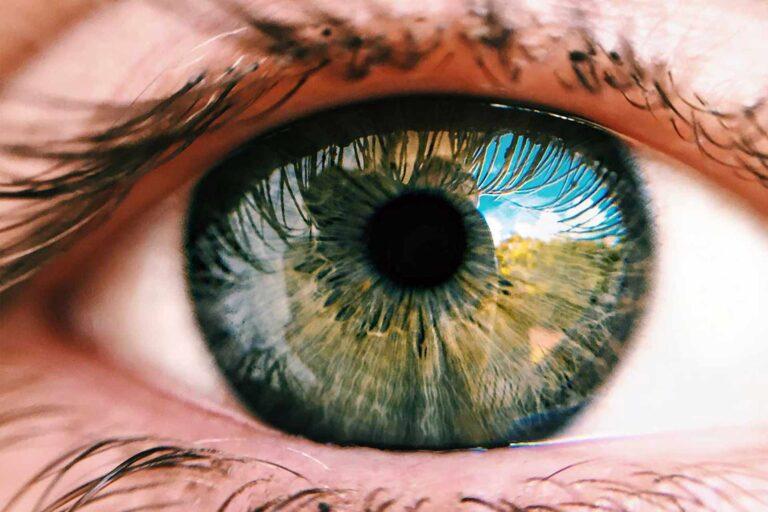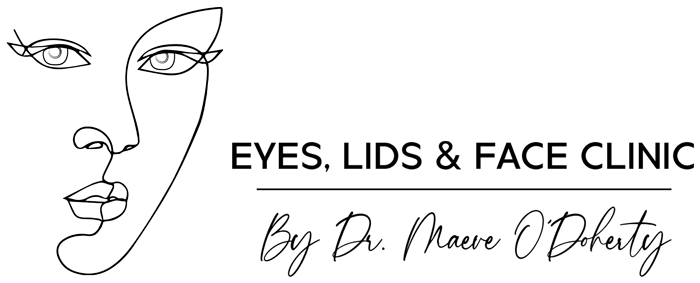
Eyes, Lids & Face by Dr. Maeve
What are Ectropion/Entropion?

Ectropion is a condition where the lower eyelid turns outward and droops away from the eye, often referred to as “rolling out” of the eyelid margin. While usually not serious, it can cause discomfort, foreign body sensation, and mucous discharge, affecting both eye health and self-confidence. Artificial tears can help ease these symptoms by keeping the eye lubricated and reducing irritation. In more severe cases, medical intervention may be necessary to restore comfort and appearance.
Entropion occurs when the eyelid turns inward, causing the lashes and skin to rub against the eye’s surface — often called “rolling in” of the eyelid. This can lead to irritation, redness, and even corneal ulcers if left untreated. For some, the inward turning happens only when blinking hard or squeezing the eyes, while for others — especially seniors — an involutional entropion remains present all the time, most commonly affecting the lower eyelid. Though rarer, it can also occur in the upper lid. Early assessment and treatment are crucial to prevent long-term damage and restore comfort.
Eyes, Lids & Face by Dr. Maeve
Our Process

1. Personalised Assessment
We start by reviewing your medical history and current eye health to determine if ptosis surgery is the right solution for you.
2. Expert Recommendation
Based on your assessment, we provide a tailored treatment plan to address your drooping eyelid and improve both function and appearance.
3. Precision Eyelid Lifting
The procedure involves lifting the eyelid, restoring a clearer field of vision and a more refreshed look.
4. Specialist Care
Our surgeon has advanced training in eye surgery and ophthalmology, ensuring your procedure is performed with skill and precision.
Symptoms of Ectropion
Redness and soreness
Watery eyes
Irritation and grittiness
Recurring infections
Causes of Ectropion
- Age
- Eyelid Lump or Cyst
- Nerve Paralysis
- Skin Tightening/Shortening
- Congenital
Symptoms of Entropion
Foreign body sensation
Redness and irritation
Excessive tearing and discharge
Pain and light sensitivity
Causes of Entropion
- Age
- Scars
- Previous Surgery
- Infection
- Inflammation
Eyes, Lids & Face by Dr. Maeve
Ectropion/Entropion FAQ's

It is a condition involving the eyelid turning inwards and rubbing against the surface of the eye.
It is a condition where the lower eyelid turns outwards away from the eye.
- Redness of eyes
- Conjunctivitis
- Watery Eyes
- Irritation
- Soreness of eye
- Corneal Ulcer
- Sensitivity to light
- Feeling of something in your eye
- Eye redness
- Eye irritation
- Eye pain
- Sensitivity to light
- Excessive tearing
- Eye discharge
- Reduced vision
- Unfortunately, no operation is entirely without risk. However this surgery is common and people usually experience common side effects temporarily after surgery.
